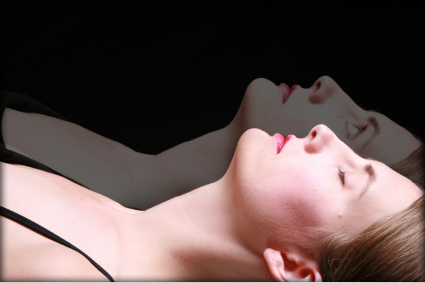Out of Body Experiences, Dreams and Memories
By Joel D.
Generally if you ask a person if they remember their dreams most people will reply with “I don’t have dreams” the same can be said when asking people if they have out of body experiences. While people generally don’t remember much about their dreams it doesn’t mean they don’t dream it just means that they don’t remember what they where dreaming about. In our social culture we are so busy with work and other commitments that we don’t have time to self reflect and take a moment to relax. Stress, anxiety and depression are also a part of our social culture and these are all affecting our ability to remember our dreams. The fact is that we all dream every night without fail – our subconscious takes over and our mental issues are sorted out and our imaginations are set free to be creative and find new ideas for our next day in the conscious world.
If we were able to consciously remember our dreams in great detail we would gain great insights into our inner minds and new ideas and creative inspiration would be easily accessible to all. It may seem like a challenging thing to try and do and not worthy of our precious time that we could be spending on our work or with our families but it really is not that difficult and takes barely anytime at all. It is important, however, to first understand a few key concepts so that we understand just why we don’t always remember, and what forces are at work.

Shadow memory is a term first coined by Robert Bruce, a veteran Out of Body Experience (OBE) researcher, traveller and metaphysical researcher. A shadow memory is a term for all memories that are not gained during normal waking consciousness by the physical body. These include memories gained during OBE’s, dreams and even lucid dreams. They are downloaded into the physical mind after these experiences and are in inaccessible levels of our memory. This is why so many people don’t think that they dream. It’s because they can’t recall the experience. When a person experiences something traumatic in a dream such as a having a nightmare or feeling strong emotions they are more likely to remember, when normally they don’t. This is because strong emotions and intention make this the stronger memory and it overrides the shadow memory process. If this is the case then we must conclude that there is more than one set of memory to be downloaded at the same point in time. This is where we have different levels of consciousness all working simultaneously while a person sleeps or is having an OBE.
When a person is sleeping there is the physical mind, the dreaming mind and in some cases the OBE mind all work simultaneously, each experiencing and recording their individual perceptions and experiences. These are simply different levels of the one consciousnesses working together. When a person is in a state of sleep paralysis and becomes aware of this it can be frightening as the person can’t move. This intense fear can carry over into the dreaming mind and cause the person to start having a nightmare and at the same time the OBE mind will start feeling fear and anxiety for no logical reason. Depending on which mind is experiencing the strongest emotion (in this case fear) that will be the primary memory and will be the only thing remembered.
Understanding these factors we now see that there is a very complex system at work here. Using this knowledge there are measures we can put into to place to choose which memory we wish to recall – in this case we are aiming to improve our dream recall and OBE recall.
The first thing a person should do is keep a dream journal. Just a simple A4 notebook which is dated and used after every night’s sleep. Simply write down any strong feelings and events that you can remember immediately after waking. This should be done straight away as shadow memories fade very quickly. I have been doing this for about 4 years now and have found patterns in memory recall. At first very little is written down as not much is remembered. After about a week a few lines became ¼ of a page and after about a month I was able to write about a page per night of separate dreams all from one night’s sleep. After months I could remember dreams in minute detail, right down to the colours of the tree’s, plants, birds and animals, the texture of the ground and the details of people I encountered became very clear. The amount of individual dreams I could remember was increasing. (Sometimes 6 a night). This shows that focusing and using intention to remember increases recall tremendously.
Knowing that strong emotions and intention are two of the main factors that influence which memory becomes primary, we can use this to further increase dream and OBE memory recall. Before going to sleep at night reciting affirmations to oneself out loud has great affect. This is simply saying aloud “I remember my dreams”. This should be done in a quiet room without distraction and recited 20-30 times every night before going to sleep. Variations can include “I remember my dreams easily and freely” or “I recall dreams regularly and record them in my notebook”. These affirmations are imbedded into the subconscious. This might sound silly but it works. As it is the subconscious mind that is active while we dream it will still be thinking over the affirmations done just before sleep and work its way into improving recall on a subconscious level. It is, however, important to state these affirmations in the present moment, as if it is already achieved. This is because the subconscious, unlike the conscious mind, does not understand time (past and present) and also does not understand negative words. For example, an ineffective affirmation would be “I will recall my dreams after waking up in the morning” or “I don’t want to have nightmares”.
Another way to increase recall is to regularly practice some form of trance meditation. A very light trance or near-daydreaming state encourages shadow memories to surface inside the conscious mind so that they can become accessible memories. In a relaxed state the subconscious mind wanders through events, ideas and fantasies which cause associations to be made with fragments of shadow memories. Could this be an explanation for Déjà Vu as well? The recovery of a partial shadow memory? Whilst keeping this in mind upon waking, try keeping your eyes closed and practice meditation and let your mind focus on recalling dreams. You’ll find memories come to the surface quite easily and when something, even the tiniest thing, is recalled, focus on that memory further and more memories (with practice) will be recovered.
Once a person understands all the processors involved in dreams and memory it should not seem as hard to start recalling memories of dreams and OBE’s every night. Using these recollections of memory we can put to better use the 1/3 of our life spent on sleeping. And who knows what we might achieve then. The possibilities are endless.
